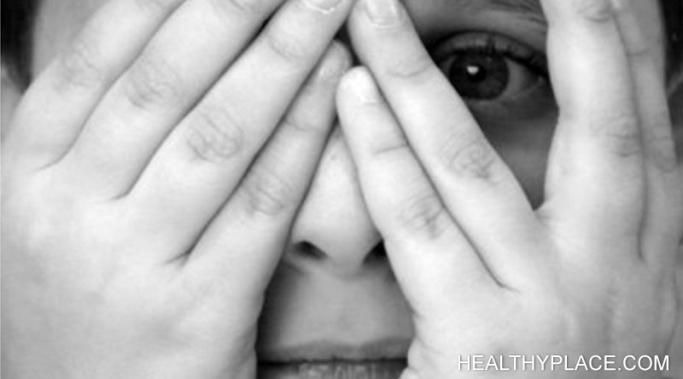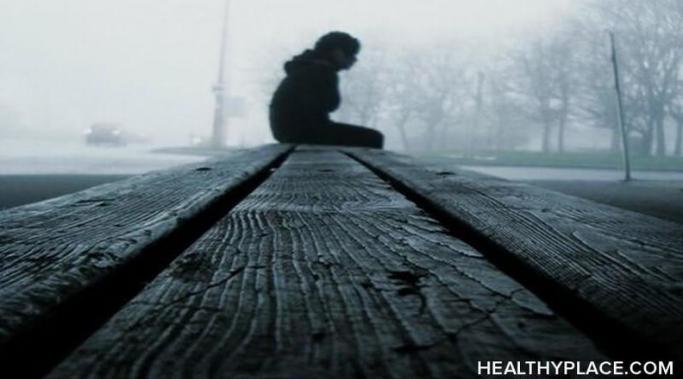Let me preface this post by telling you that when you live with a mental illness you know why it's so hard. It can feel impossible. But have you ever sat down and really thought about it? Thinking about things, writing them down, can allow us to make sense of something that is often complicated and hard to understand.
Recovery Issues
This morning, coffee in hand, I tried to think of a topic that might be a little bit easy to write. It's one of those days. I'm a little bit afraid I won't think of anything. And then this idea springs from somewhere in my mind that is clearly more awake than I am. It's not going to be the easiest, but it's something I have never explored before and, well, I guess it's about time. Irrational fear in mental illness can and usually does diminish as we recover.
This post was derived from a couple of different sources. One, a few insightful comments readers made on why living with a mental illness makes us exhausted. This post focused on a few of the reasons why mental illness can cause exhaustion in those who live with, and experience it, on a daily basis. These readers stressed that they struggled with exhaustion and pain living with, and supporting, those who struggle with mental health.
Two, comments from people living with mental illness that could relate to my post, could relate to the feelings surrounding mental illness and the coinciding exhaustion (Can People Without a Mental Illness Understand Us?). I started thinking and decided that this topic should be explored--both sides of it.
Things are changing in the world of mental health. This blog will focus on one of these changes: The average age of diagnosis. Yes, this might seem like a boring topic but I'll work to make it interesting because it's important.
Bob Dylan said it best: The Times They Are a-Changin'. . .
I came up with this topic when I was in a state of serious depression--less than a month ago. I was certain I would never become well. Those of you who live with a mental illness understand this on a very deep and personal level.
While I was glued to the couch I started thinking about how much time I spend exhausted--some days less and some more. Mental exhaustion and physical (or both) can define a large part of our lives.
Without further explanation (coffee in hand) let's explore this topic.
When I think of the word 'help,' I think about how hard it is to ask for and accept help. It is usually the most difficult when we are first diagnosed with a mental illness. Unfortunately, that's when those who live with mental illness need help the most. This blog will explore why asking for help can be so hard and the steps we can take to make the process easier.
Isolation and mental illness go hand in hand. They sort of breathe the same air--stifling and hot and when we live with a mental illness, sometimes we just want to be alone (Mental Illness, Isolation, and Loneliness). After all, if we are alone our pain is hidden. Our pain is hidden but exemplified by our silence. Isolating ourselves makes recovering from mental illness more difficult. Let's explore why.
A blog, from me, that is actually a bit positive in its desire to promote mental health? Well, yes, this is. If you read enough of my blogs (say two or three) you probably gather that I mix in a healthy amount of sarcasm--alongside with the recovering from mental illness bit. If you read this blog often enough it's clear I've had a rough time the past few months. Honestly, it feels like years and maybe it has been, but this fall and winter hit me hard. I'm sort of back on my feet again--albeit tottering--and so this blog is less sarcastic than most. Perhaps it is even verging on positive?
When you are diagnosed with a mental illness--chronic or not--feelings of resentment are normal. They are even healthy, in small or medium doses, depending on your frame of mind.
This may be a dark post-- an angry post. Like that ugly picture which makes perfect sense to me. But I cannot paint this topic in pretty colors; I can paint it in black.
I hate addiction. I despise it. In all of its forms. Addiction is insidious. It sneaks up on you slowly and with intent. Before you can pull away it's already walking beside you: walking beside you even though you want to run the hell away.
Yes, I am describing addiction abstractly because its tremendously hard for me to put words to that which nearly killed me. And that which does the same to many people struggling with it.
It's not for the faint of heart--not when it can stop your heart.









